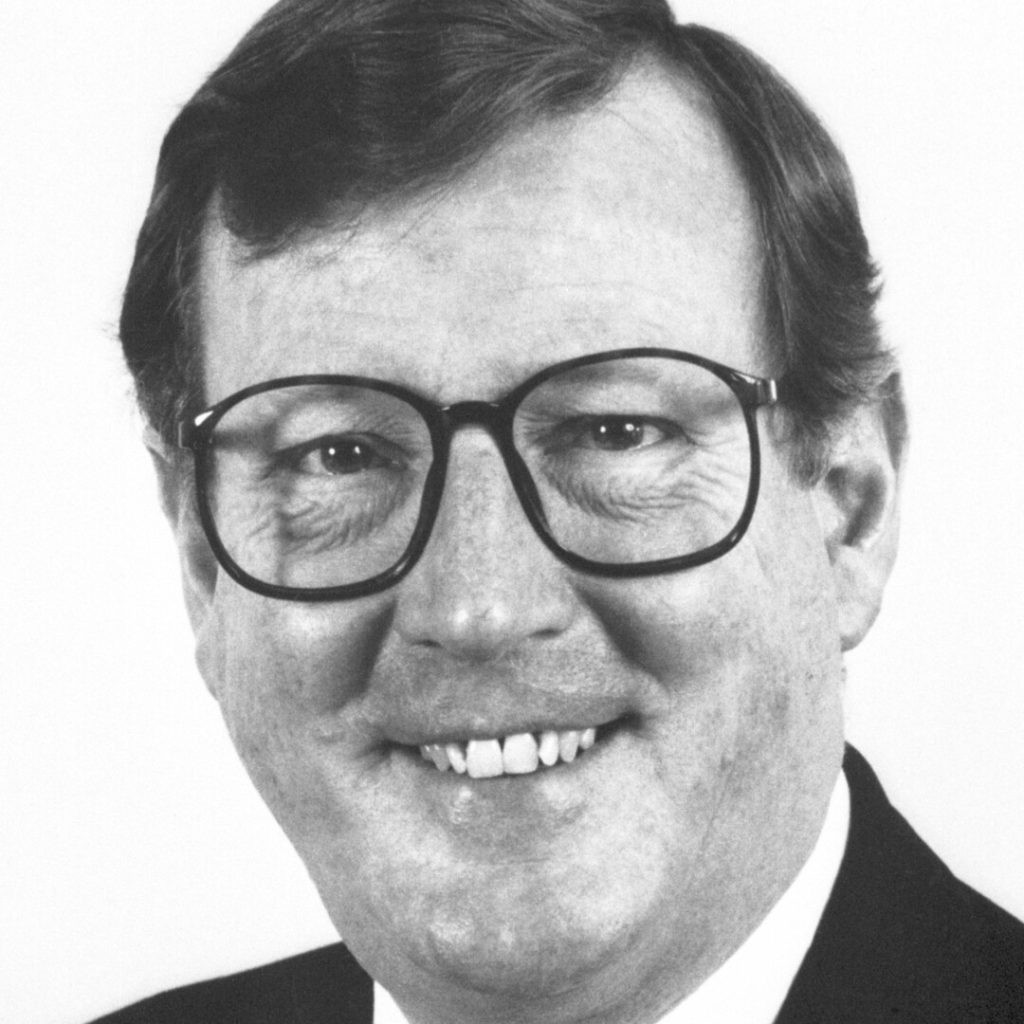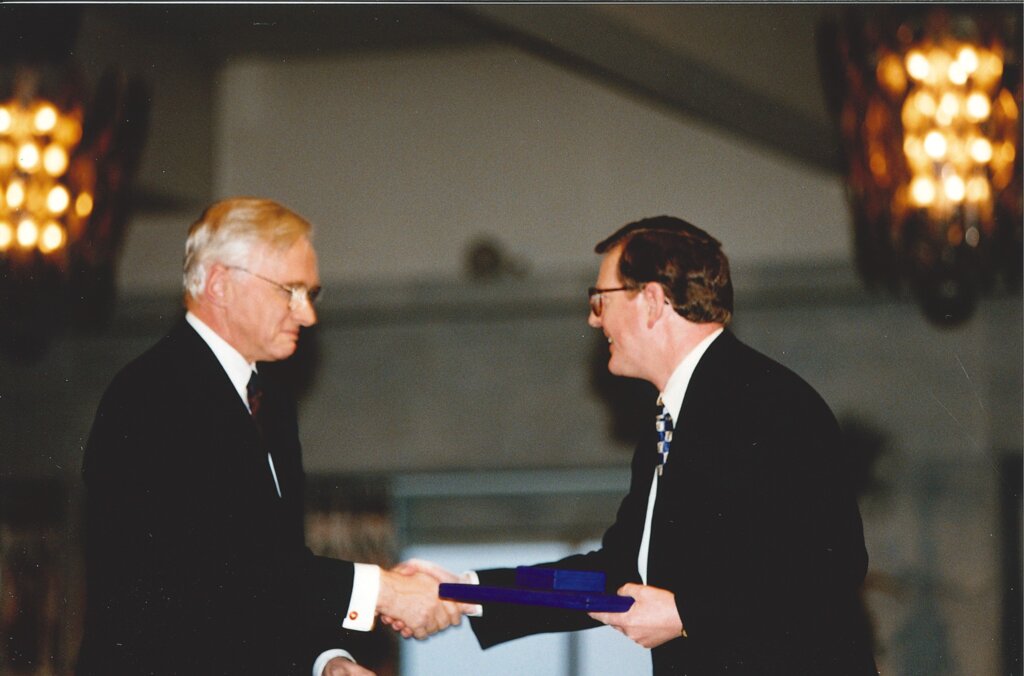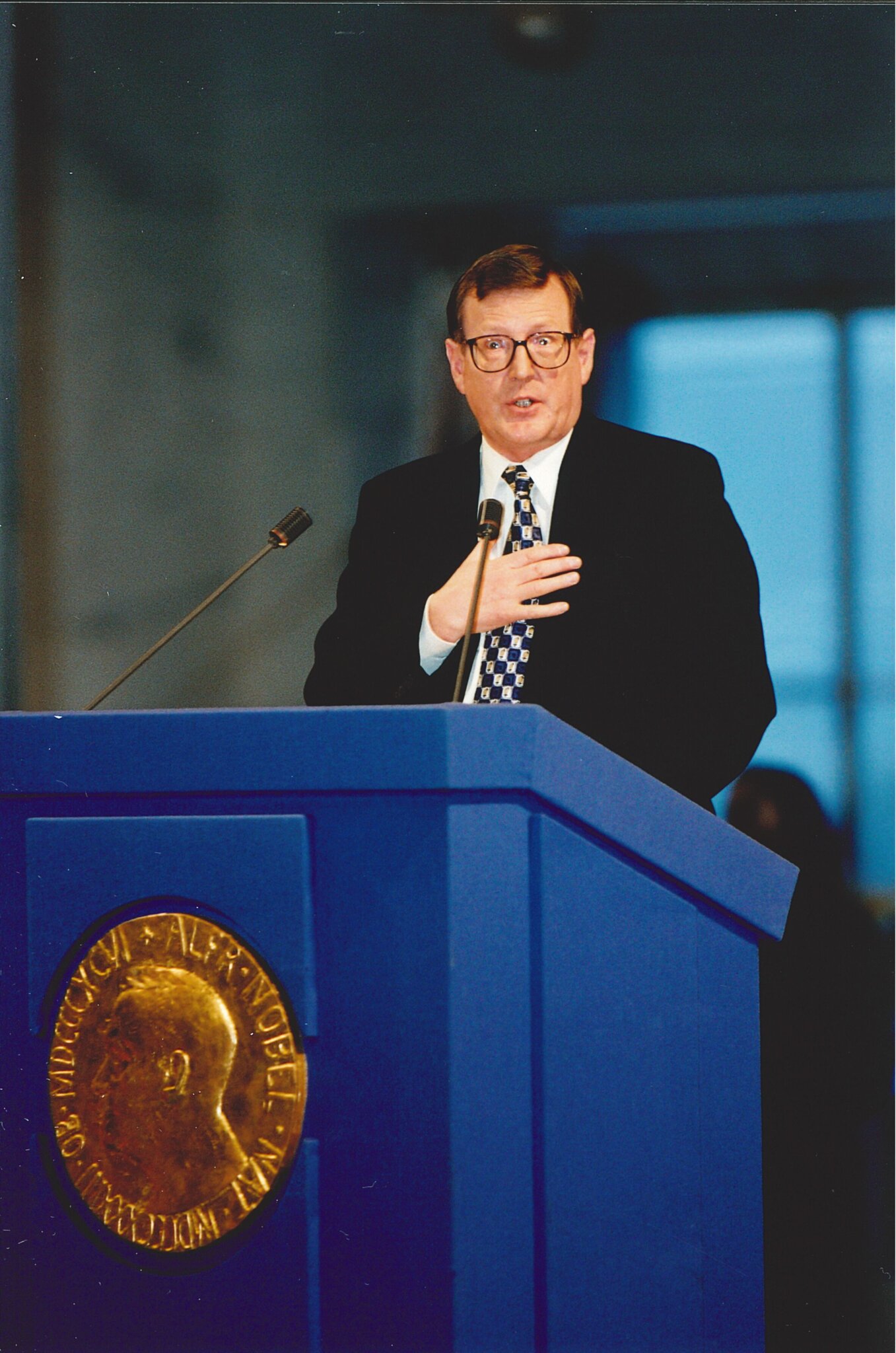David Trimble
Speed read
David Trimble was awarded the Nobel Peace Prize, jointly with John Hume, for his efforts to find a peaceful solution to the conflict in Northern Ireland.

Full name: David Trimble
Born: 15 October 1944, Belfast, Northern Ireland
Died: 25 July 2022, Belfast, Northern Ireland
Date awarded: 16 October 1998
Protestant skilled at compromise
David Trimble, leader of the Protestant Ulster Unionist Party (UUP) in Northern Ireland, was known for his intransigence toward Catholics, but after he took over as party chairman in 1995, he initiated talks with his political opponents. Trimble negotiated with Ireland’s prime minister, his arch-enemy the IRA and the British. In 1998 he signed a peace accord that he gained majority support for within the UUP. The Good Friday Agreement called for expanded self-rule for Northern Ireland, in which both Catholics and Protestants were assured a voice. Criminal legislation would be amended, political prisoners would be released and armed factions would turn in their illegal weapons. In 1999 Trimble became first minister with a mandate to implement the peace accord.
"What we democratic politicians want in Northern Ireland is not some utopian society but a normal society. The best way to secure that normalcy is the tried and trusted method of parliamentary democracy."
David Trimble, Nobel Prize lecture, 10 December 1998.

| Ulster Unionist Party Founded in 1905. The largest Protestant political party in Northern Ireland. Headed by David Trimble since 1995. Trimble was awarded the Nobel Peace Prize in 1998 for negotiating a peace agreement with Catholics. |
| IRA Irish Republican Army. Founded in 1919. Played a decisive role in the war of liberation against Great Britain. Its goal is to unify Ireland. Starting in 1970, the IRA committed acts of terrorism and assassination in Northern Ireland and England. In 2000 the IRA agreed to abandon its armed struggle. |
| Good Friday Agreement Agreement between the Irish and British governments on a peaceful resolution to the conflict in Northern Ireland. Entered into on Good Friday (12 April 1998). Approved by public referendums in Ireland and Northern Ireland the same year. |
From unbendable to compromise
When David Trimble took part in the Protestant memorial march in 1995, few would have imagined that soon he would be negotiating with his longstanding enemies. Ever since the early 1970s, he had been known as an unyielding Protestant who fiercely opposed the Catholic nationalists. Just a few weeks later, Trimble, as the newly elected party chairman, met for talks with Ireland’s prime minister. He was the first unionist to set foot in the Irish parliament since the island had been partitioned. When the Good Friday Agreement was signed, he fought hard to gain majority support for the accord within the UUP.
"David Trimble has recognized that sensible compromise is the only way out of a deadlock born of hatred and outdated prejudice."
The German radio-station Deutsche Welle, 30 May 2000.
Disarming and history. Stumbling blocks to peace
In his Nobel Prize lecture, Trimble had the following to say about the coming challenges: “There are Hills in Northern Ireland and there are mountains. The hills are decommissioning and policing. But the mountain, if we could but see it clearly, is not in front of us but behind us, in history. The dark shadow we seem to see in the distance is not really a mountain ahead, but the shadow of the mountain behind – a shadow from the past thrown forward into our future. It is a dark sludge of historical sectarianism. We can leave it behind us if we wish.”

Trimble’s parting with UUP
The massive loss of vote for the Ulster Unionist Party (UUP) in the Northern Irish election of 2003 weakened David Trimble’s position as a politician. When, two years later, he also lost his seat in the British Parliament, he stood down as party leader. In 2006 Trimble was made Baron Trimble of Lisnagarvey and gained a seat in the British House of Lords. The year after, he left the UUP and joined the Conservative Party.
Peace process without David Trimble
After elections for the new provincial assembly in 2007, the two former arch enemies Gerry Adams from Sinn Fein and Ian Paisley from the Democratic Unionist Party agreed to cooperate. They formed a government and ensured that disarmament and the formation of a new police force could continue. Thus, two key elements of the Good Friday Agreement were finally fulfilled.
"Under his leadership, enough fear and suspicion was overcome to enable a majority of unionists to rally behind the Good Friday agreement."
Francis Sejersted, Presentation speech, 10 December 1998.
Learn more
David Trimble was born in Bangor, Northern Ireland on 15 October 1944. He was educated at Bangor Grammar School, and graduated from Queen’s University, Belfast in 1968 with a first-class honours degree in Law ...
Disclaimer: Every effort has been made by the publisher to credit organisations and individuals with regard to the supply of photographs. Please notify the publishers regarding corrections.
Nobel Prizes and laureates
Six prizes were awarded for achievements that have conferred the greatest benefit to humankind. The 12 laureates' work and discoveries range from proteins' structures and machine learning to fighting for a world free of nuclear weapons.
See them all presented here.
